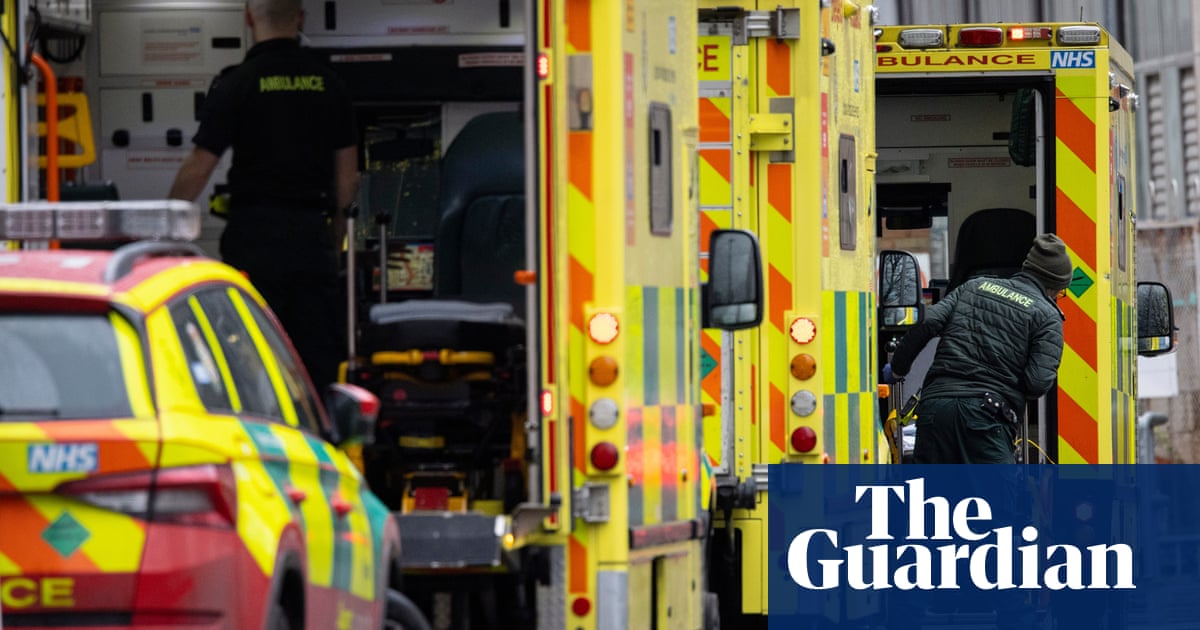
NHS staff should get a 5% payrise next year as part of a £12bn boost to health and social care to help them “build back better” after the Covid pandemic, a thinktank has urged.
The money would help the NHS tackle understaffing, overcome the widespread disruption to non-Covid care and start to again improve outcomes from diseases such as cancer.
The call by the Institute for Public Policy Research (IPPR) came as NHS England and the Treasury prepared to complete negotiations over how much more cash the health service will get in 2021/22 to cover the extra costs of the pandemic.
The thinktank’s proposal for a 5% uplift in NHS staff pay comes hours after Matt Hancock faced fresh controversy for insisting that the government’s 1% offer represented a real-terms increase.
“Inflation is below 1% and therefore a proposed 1% pay rise is indeed a pay rise, and that’s simply a matter of fact,” the health secretary told the Commons health and social care select committee on Tuesday.
Pressed on why it was 1% when NHS England’s Long Term Plan budgeted for a 2.1% pay increase next year, Hancock said: “The NHS was carved out of the pay freeze that has been applied due to the enormous pressure on the public finances – that has been applied to everyone else in the public sector.
But Sara Gorton, Unison’s head of health, said: “Inflation and freezes to tax allowances mean a 1% increase is neither a wage rise, nor an acceptable way to treat health workers who’ve given everything this past year. Matt Hancock should stop trying to defend the indefensible.”
The Royal College of Nursing, which has threatened a nurses strike in protest at the “derisory” 1% offer, said “exhausted and over-worked” nurses deserved a 12.5% rise.
Giving all NHS workers except consultants and senior managers 5% would cost £1.4bn, the IPPR has calculated. An increase like that would help the service address the serious problems of recruitment and retention that have left the NHS short of around 85,000 personnel, it says.
It argues that the NHS needs £6bn more a year over and above existing plans, of which £2.2bn for each of the next five years would help it restart the diagnostic and treatment services suspended when hospitals had to focus on Covid care, such as cancer screening and GP appointments.
“The NHS has been there for us, from outbreak to vaccine. Our blueprint for reform is the booster shot it now dearly needs,” said Dr Parth Patel, an IPPR research fellow and lead author of its new report, who is also an NHS doctor.
It urges ministers to spend £1bn subsidising the wages of social care workers, to help address staffing problems in care homes and at-home personal care services. It also recommends making personal care for over-65s free in England, as it is in Scotland, which would cost £5bn.
Boris Johnson and Hancock should co-chair a new cabinet committee on public health to ensure that action is taken to tackle stark health inequalities between rich and poor, it adds.
In a poll of 172 senior NHS and local council leaders by Savanta ComRes for the report, 33% said post-Brexit migration rules needed to be loosened to allow more health and care staff to work in the UK while 31% identified more flexible working as a key way of stopping staff from quitting.
A government spokesperson said: “We are backing the NHS in every possible way in our fight against this virus, investing £63bn this year and £22bn next year. This investment comes on top of £9.4bn capital funding to build and upgrade 40 new hospitals and £3bn we have earmarked for supporting recovery and tackling the NHS waiting lists.
“It is already making a difference, with average waiting times for elective treatment falling by 40% since July and we will continue to work with the NHS to ensure all patients receive the best quality care as quickly as possible.”












